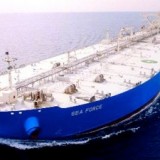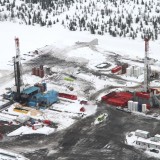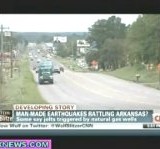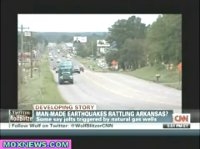Anyone who is concerned about the arrival of pipelines and tankers to BC’s West Coast should be worried. The forces are mounting to make this province a bridge to an energy-hungry Asia. And the inevitable result will be – sooner or later – a ruptured pipeline despoiling pristine rivers and a broken tanker spilling millions of barrels of oil into one of the few undefiled ecologies remaining on our planet.
This scenario is being set by a dramatic change of circumstances in the last few years. Massive investments in the Alberta oil sands have created supplies of crude that must reach markets. To maximize profits, producers want more export options than the United States, the sole foreign recipient of this crude. As America’s economy slows and Asia’s booms, ocean access to the entire Pacific Rim becomes irresistible.
Meanwhile, the entire energy calculus has changed with the discovery of extraordinary quantities of shale gas in Canada and the US. America estimates it has enough gas to meet its domestic energy needs for 200 years. Canada’s supply, centred mostly in northern BC and Alberta, is similarly generous. Since the US will need less Canadian gas, the obvious place to sell it is to Asian markets. And that means pipelines and liquid natural gas (LNG) terminals for coastal BC.
All the pieces to support the arrival of such gas and oil terminals are falling into place. China has invested $10 billion in Alberta oil sands with the expectation rewards – oil in preference to profits. Royal Dutch Shell, Korean Gas, Japan’s Mitsubishi Corporation and Malaysia’s Petronas are all urgently planning for shipments of LNG from BC’s West Coast to their markets. The Montney and Horn River natural gas fields in BC, responsible for making this province the third largest gas producer in the world, could be supplying 5.5 billion cubic feet of gas per day by 2020 – gas that needs to reach buyers. Shell and Mitsubishi are considering that floating off-shore LNG plants would be ideal for BC’s rugged coast. They and other investors are speculating about at least four coastal pipelines and terminals to tranship LNG and oil to Asian markets (Globe & Mail, June 14/11).
If any British Columbians are nervous that foreign energy corporations are planning our future and threatening our treasured West Coast ecology, they will receive no solace from Canada’s Harper government. Foreign Minister John Baird has recently been to China, calling it our “friend” (Ibid. July 19/11) and emphasizing the critical importance of China’s energy and resource appetite in Canada’s economic plans. In Shanghai he declared that Canada’s “relationship [with China] has entered a new era over the past few years” and that it is “the centrepiece of a larger picture of the priority that we want to raise with Asia-Pacific (Ibid. July 21/11). To reinforce this support, Harper’s Minister of Natural Resources, Joe Oliver, has endorsed Enbridge’s Northern Gateway Pipeline – a $5.5 billion project that would bring oil and gas through 1,172 km of BC’s wilderness to Kitimat – before the public environmental assessment has even started (ForestEthics, July 10/11).
Meanwhile, in a disquieting move that is clearly designed to erase some of the inconvenient environmental obstacles that lie between Asian energy hunger and Canada’s export ambitions, the Harper government is eliminating 776 positions from Environment Canada, with a further downsizing of 5 to 10 percent next year. These are the professional biologists, chemists and climatologists who determine the difference between careful and reckless plans, the science-based experts who advise that policy occurs within responsible environmental constraints – if no one knows about any unfolding ecological wreckage, then it obviously doesn’t exist.
Despite huge opposition to the Northern Gateway Pipeline project in British Columbia, Enbridge is sensing success and is massaging the public with a national advertising campaign designed to humanize its image from one of the least responsible of all pipeline corporations to one that cares for the public over profits. Its corporate slogan, “Where energy meets people” has been neatly spliced into nearly full-page colour newspaper ads depicting Canadians energetically engaged in activities that are supposed to connect human challenges to the importance of pipelines, to show that personal fulfilment cannot be separated from Enbridge’s crucial role in our lives. “Where Energy Meets Culture” shows ballet dancers in a dramatic pose on an open stage, “Where Energy Meets Pride” shows four aboriginal runners wending their way along a lonely bucolic road, and “Where Energy Meets Victory” shows a team of five bicyclists racing serenely along a long stretch of prairie highway.
The psychology of these ads is both oblique and devious, effectively designed so people will forget that Enbridge wants to pipe oil to a West Coast port, that oil sands crude is particularly corrosive to pipelines, that this pipeline must traverse hundreds of pristine rivers and streams on its winding wilderness course to Kitimat, and that such a pipeline will invite almost one massive supertanker per day – about 225 per year – to some of the most treacherous, beautiful and vulnerable coastlines in the world.
So this is the scenario being designed for British Columbia. It is to become North America’s western departure point for energy exports to China, Japan, Korea, Malaysia and any Pacific Rim country that belongs to the distribution circuit. Huge profits are to be made by huge corporations. The Harper government’s plan for prosperity is founded on a view that disregards ecological concerns and forgets that all this gas and oil represents greenhouse emissions that are cooking our planet.
British Columbians who love our coastline, revere the Great Bear Rainforest and honour the wild majesty of our province had better gird their loins for a fight. It’s coming, it’s coming soon, and the enemy is amassing its forces. The outcome will determine BC’s future character, alter the world’s energy calculus and decide who is joining or resisting our drift toward environmental Armageddon.





